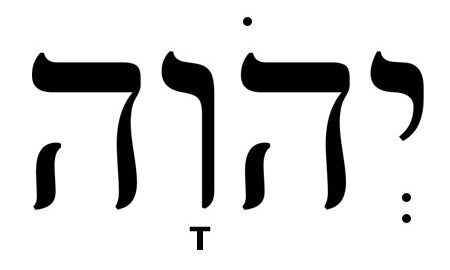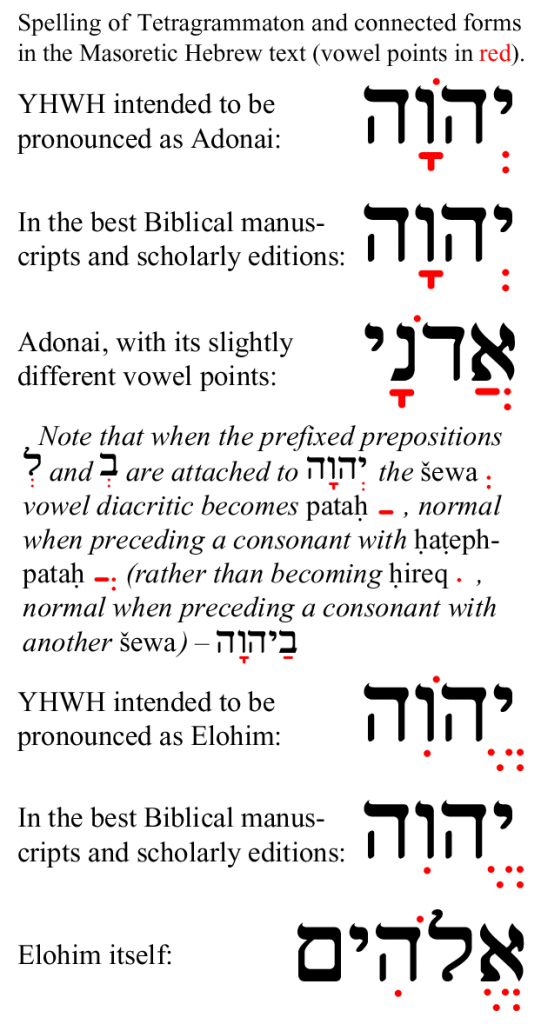The Tetragrammaton explained
YHVH: A name of God

One of the names of God consists of four Hebrew letters. Together they form the Tetragrammaton: Yod – Heh – Vav – Heh, also written as YHVH. In most translations this word is translated as LORD, using capitals in order to distinguish it from the common word lord.
According to the interpretation of Torah, the name of God is holy. That is why the Jews do not pronounce this name when the read Scripture out loud. In stead they say the word “Adonai”, this means lord. That is how they show respect for the sacred name of God.

To remind the reader of the Tenach not to pronounce this name of God but to say Adonai, the vowels points of Adonai were added to the four letters YHVH.
In some places the Hebrew words Adonai and YHVH are directly behind each other.
In these instances the name of God YHVH is not pronounced as Adonai, but as Elohim. Else you would have had to say Adonai twice.
To remind the reader to pronounce Elohim in these instances, the vowels points of Elohim are added to the name of God YHVH.
This mnemonic assist the readers to pronounce LORD or ELOHIM. Most Christian are not aware of this hidden meaning of these vowels points. When they read in the Hebrew four letters with these vowels points, they mistakenly pronounce this word as Jehovah. Because that is what these vowels points combined with YHVH states.
What was meant as a mnemonic for the reader not to pronounce the name YHVH but Adonai or Elohim, has become a complete new name: Jehovah. This by Christians invented name, does not appear in the Tenach.
We see that in the last years many Jews do not pronounce Adonai or Elohim, when they read YHVH. Instead they pronounce “HaShem”, this means simple: The Name.
Some time after the destruction of Solomon’s Temple, the spoken use of God’s name as it was written ceased among the people, even though knowledge of the pronunciation was perpetuated in rabbinic schools. Rabbinic sources suggest that the name of God was pronounced only once a year, by the high priest, on the Day of Atonement. Others, including Maimonides, claim that the name was pronounced daily in the liturgy of the Temple in the priestly benediction of worshippers (Num. 6:27), after the daily sacrifice; in the synagogues, though, a substitute (probably “Adonai”) was used.
According to the Talmud, in the last generations before the fall of Jerusalem, the name was pronounced in a low tone so that the sounds were lost in the chant of the priests. Since the destruction of Second Temple of Jerusalem in 70 CE, the tetragrammaton has no longer been pronounced in the liturgy. However the pronunciation was still known in Babylonia in the latter part of the 4th century.
Source: https://en.wikipedia.org/wiki/Tetragrammaton